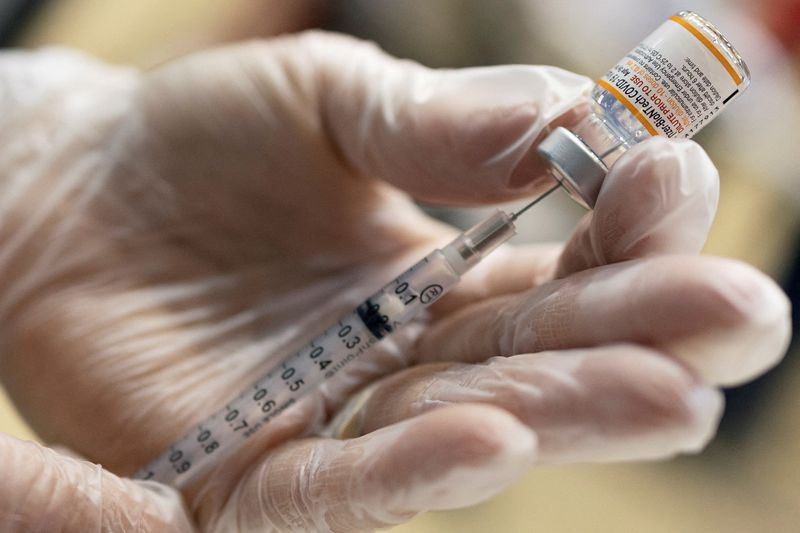(Reuters) - Two doses of the Pfizer Inc (NYSE:PFE) and BioNTech COVID-19 vaccine are highly protective against a rare but often serious condition in children that causes organ inflammation weeks after COVID-19 infections, a U.S. Centers for Disease Control and Prevention report said on Friday.
The vaccine was estimated to be 91% effective in preventing Multisystem Inflammatory Syndrome in Children (MIS-C) in 12- to 18-year-olds, the study said. MIS-C causes inflammation in children in organs including the heart, lungs, kidneys and brain two to six weeks after a mild or asymptomatic infection.
The estimate is based on the assessment of 283 hospitalized patients aged 12–18 years at 24 children's hospitals in 20 states between July and early December, when the prevalence of the Delta coronavirus variant was high.
All 38 MIS-C patients requiring life support were unvaccinated, the study said.
The results add to a growing body of evidence that vaccination against COVID-19 is likely to prevent disease-related complications in children, including MIS-C, the report said. It was not previously known whether the Pfizer/BioNTech vaccine prevented the condition.

The study's findings have several limitations including questions about vaccine effectiveness against the fast-spreading Omicron variant, the report published in the CDC's Mortality and Morbidity Weekly Report (MMWR) said.
Children aged 5–11 years are at highest risk for MIS-C but only became eligible for the Pfizer-BioNTech vaccine in late October in the United States. They were not included in the analysis, the report said.